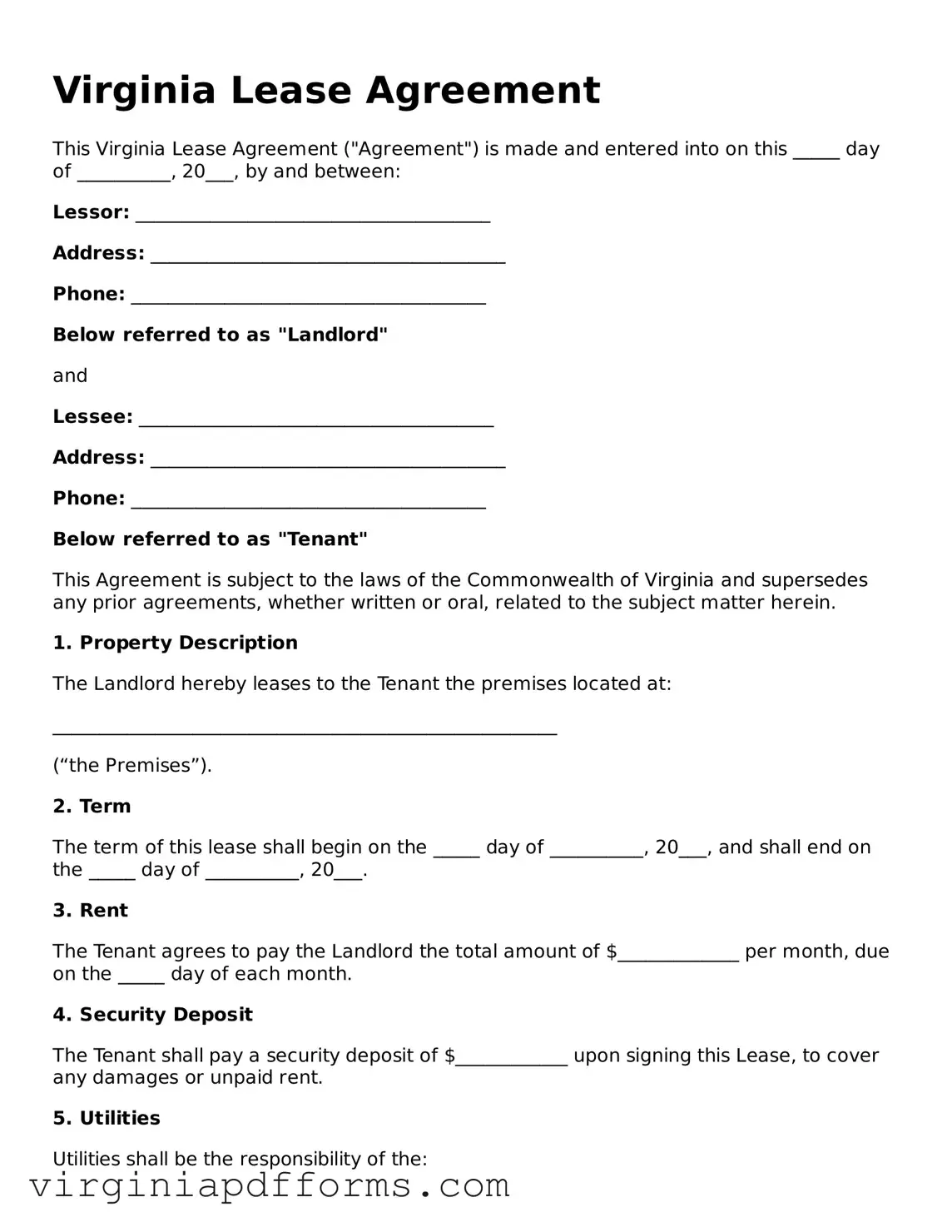Attorney-Approved Virginia Lease Agreement Document
A Virginia Lease Agreement form is a legal document that outlines the terms and conditions between a landlord and a tenant for renting residential or commercial property in Virginia. This form serves to protect the rights of both parties and establishes clear expectations regarding rent, duration of the lease, and other important provisions. Understanding the components of this agreement is essential for ensuring a smooth rental experience.
Access My Document Now

Attorney-Approved Virginia Lease Agreement Document
Access My Document Now

Access My Document Now
or
Free Lease Agreement File
Need this form wrapped up fast?
Finish Lease Agreement online — edit, save, download without effort.